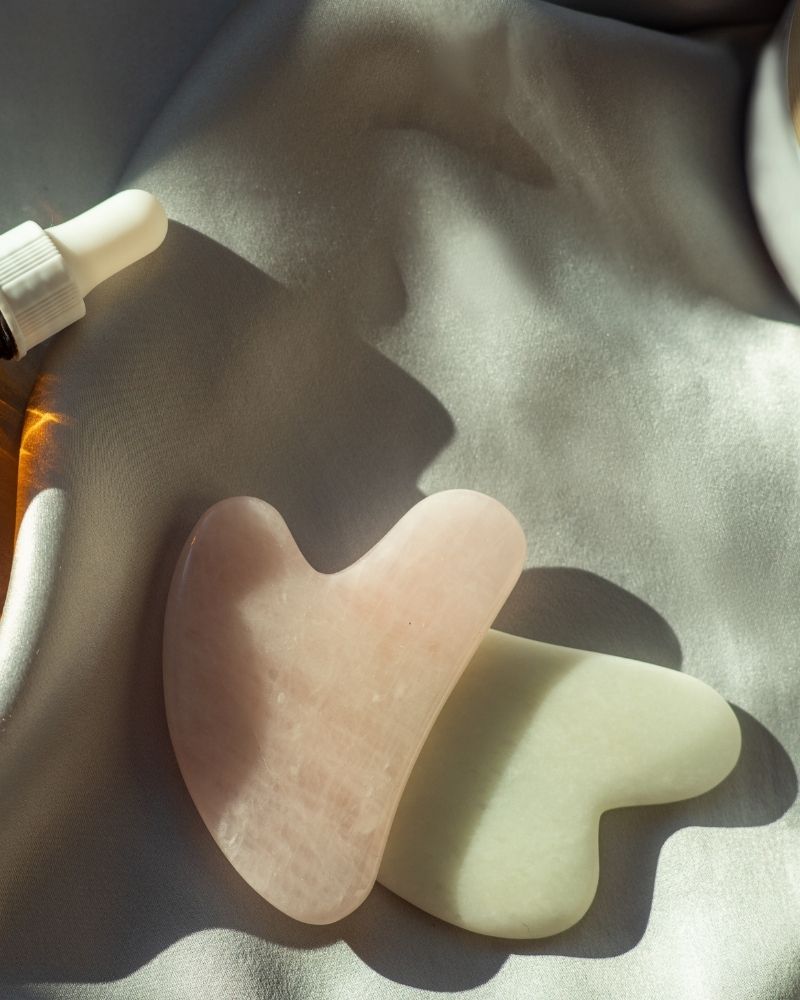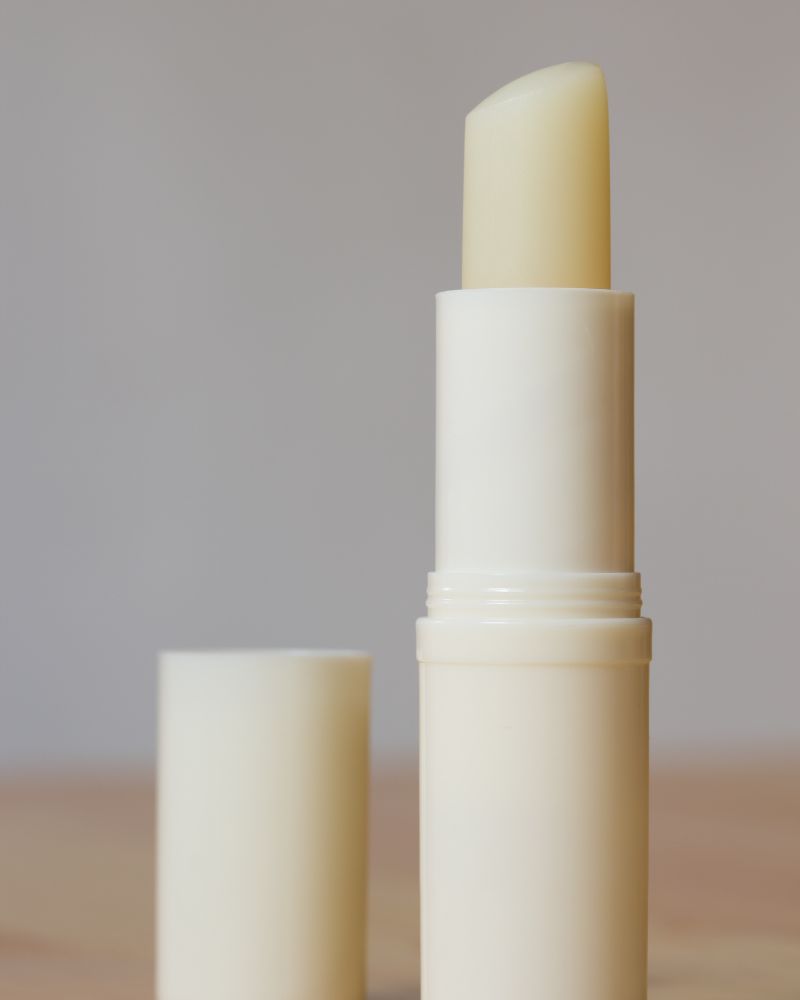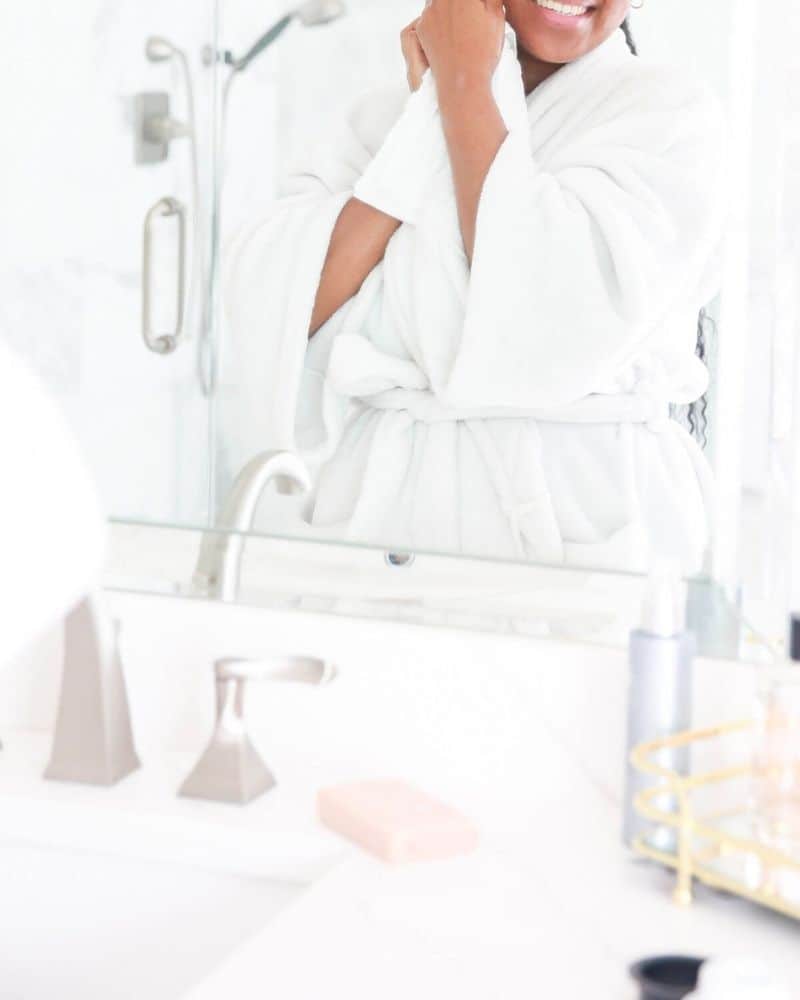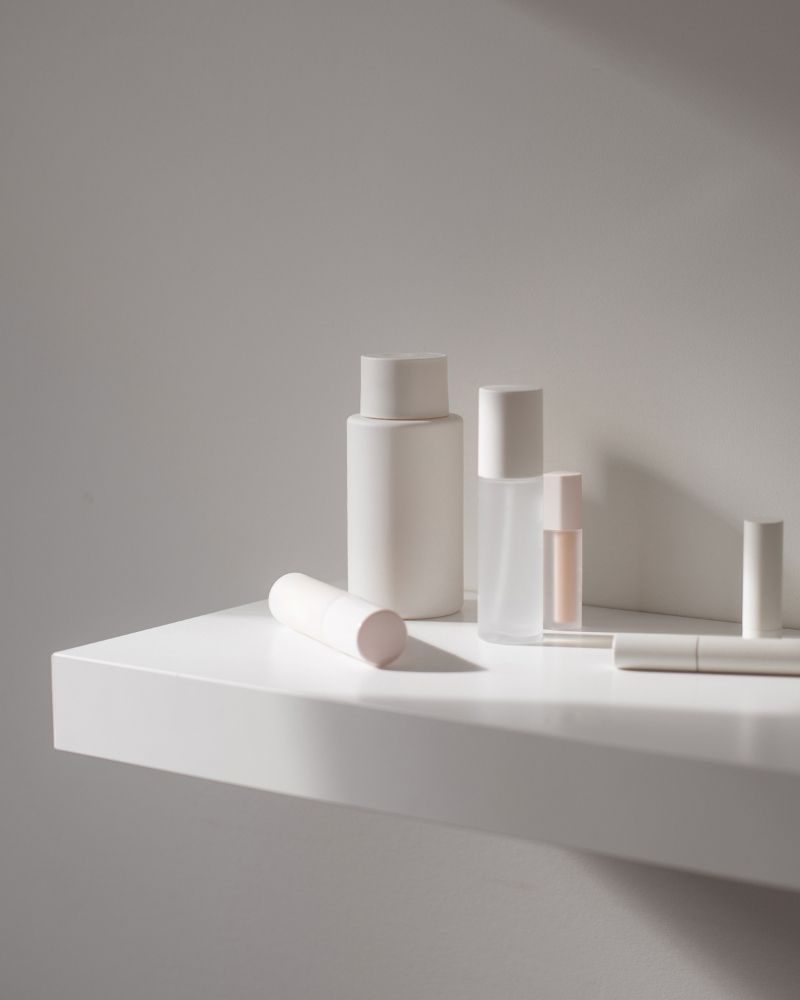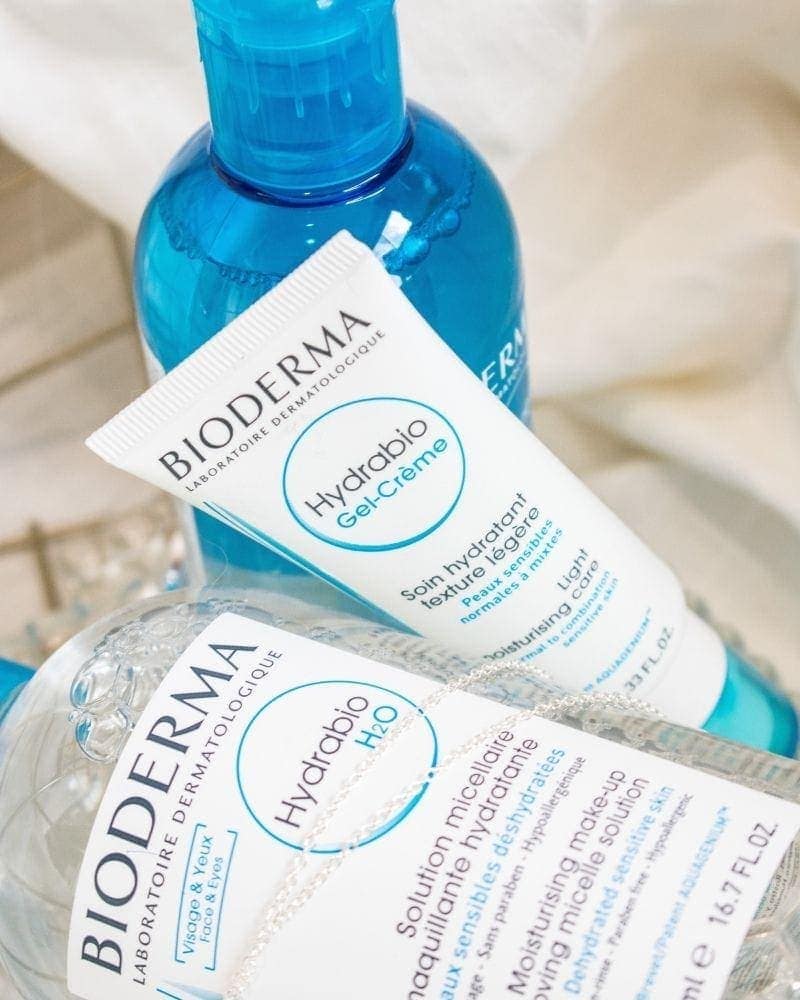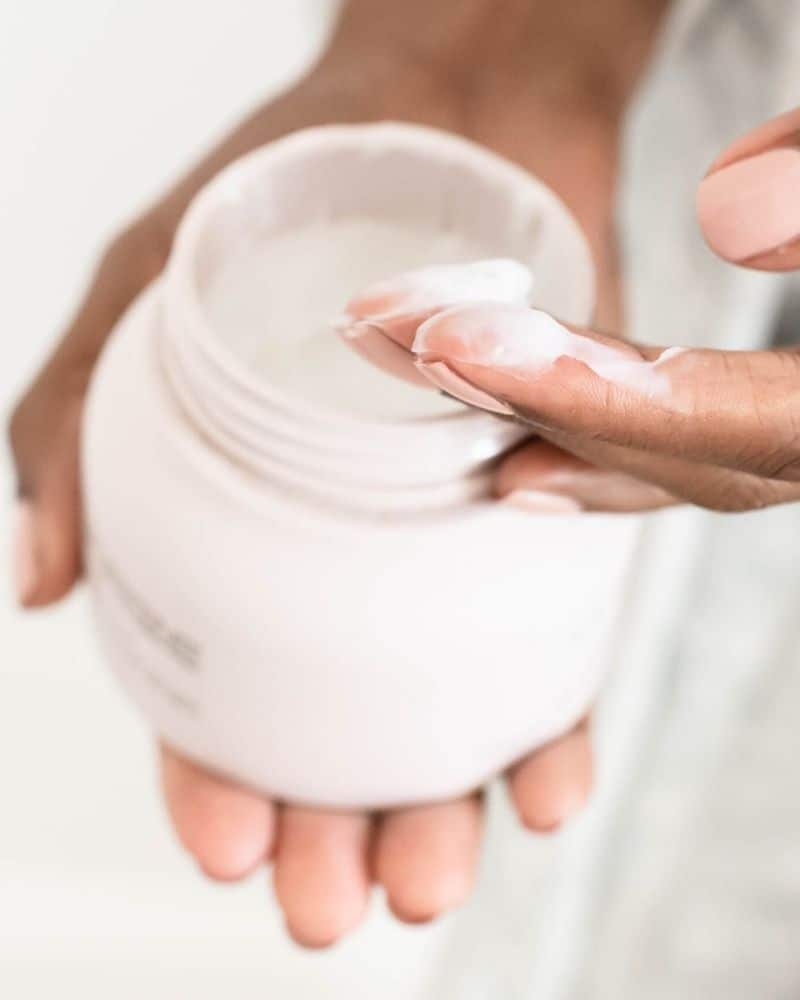Can Micellar Water Cause Acne?
This post may contain affiliate links.

Micellar water has become a staple in many skincare routines for its gentle and effective cleansing properties. This no-rinse solution has earned a reputation for being gentle on the skin and removing makeup and other impurities without stripping the skin of its natural oils. But, with so many people using micellar water as a regular part of their routine, it’s natural to wonder if it could be causing more harm than good. One common concern is whether or not micellar water could be contributing to acne breakouts. In this blog post, we’ll take a look at micellar water and answer the question can micellar water cause acne or clogged pores? So keep on reading to find out.
What Is Micellar Water?
Although it may just look like plain ol’ water, it’s actually much more than that. Micellar water is a cleansing solution made up of tiny micelles, which are suspended in soft water. These micelle molecules attract dirt, oil and makeup like magnets, to help cleanse the skin. They are claimed to be a rinse-free, water-free cleanser that’s gentle on even the most sensitive skin. So how do micellar waters work? Let’s dive in!
Micellar water is kind of a mix between a cleanser and a makeup remover. Many people use micellar water to remove makeup or sunscreen before following up with a second cleanser.
Micellar water generally has two main ingredients: micelles, which are tiny droplets of oil, and water. Technically, the tiny droplets of oil are lipid molecules (surfactants) that form a sphere when mixed with water or other liquids.
You’ve probably heard of cleansing oils and cleansing balms, micellar water is similar in that it uses oils to breakdown dirt, oil and makeup from the skin. It’s much gentler than traditional soaps and cleansers, making it a great choice for those with sensitive or acne-prone skin.
Most micellar waters will have additional ingredients like glycerin or ceramides to help hydrate and soothe the skin. They have a consistency similar to toners – very watery. Most will simply look like water in the bottle, but if you look closely, you will see the two separate layers of oil and water. Once you shake it up, the oil disperses into the water and you can see the tiny micelles floating around.
Micellar waters first became popular in France and have been gaining traction in the US for the last several years. It’s now a staple in many people’s skincare routines. Many people like them because they’re less messy than oil cleansers or balms and are very gentle on the skin.
Micellar water is meant to be used on a cotton pad and swept over the skin to remove makeup, dirt and oils. Though some use micellar water as their only cleanser, it’s not meant to replace a traditional cleanser, as it won’t remove all makeup and impurities that have accumulated on the skin throughout the day. It’s best used as a makeup remover before cleansing.
Micellar water is great for those with sensitive skin as they can be used as a waterless cleanser if your skin is feeling particularly sensitive.
It’s important to note that micellar water should not take the place of an actual cleanser. Although it does do a good job of cleansing, it’s still not enough to rely on on its own.
Related post: What’s The Difference Between Micellar Water & Witch Hazel?
Micellar Water Benefits

Micellar water can have many different benefits for the skin, as long as you choose one that’s formulated for your specific skin type. Not only are they perfect for those with dry or sensitive skin types, but even individuals with oily and acne-prone complexions may benefit from them.
Micellar water is very gentle and lightweight on the skin, which makes it perfect for sensitive skin. This is because it’s non-foaming and doesn’t contain any harsh chemicals or ingredients that can strip the skin. Most micellar waters also contain ingredients like glycerin or chamomile to help hydrate and calm the skin.
Micellar water can be more convenient to use as a cleanser when you’re away from home, especially if you’re camping or something and don’t have access to water.
They easily breakdown dirt, oil, makeup and sunscreen to help keep your skin clean and clear from impurities. Some micellar waters can also be beneficial for treating acne by cleansing the skin and removing any acne-causing impurities without causing further irritation.
Cons of Micellar Water
What are the side effects of micellar water? Luckily, there are just a couple things to keep in mind when using micellar waters.
Micellar water does have a few drawbacks to keep in mind. Since it contains oils, those with oily and acne prone skin types should be careful because the oils can end up clogging pores and leading to acne.
Micellar water also isn’t as powerful at removing heavy or waterproof makeup as a dedicated makeup remover or oil cleanser would be.
Can Micellar Water Cause Acne?
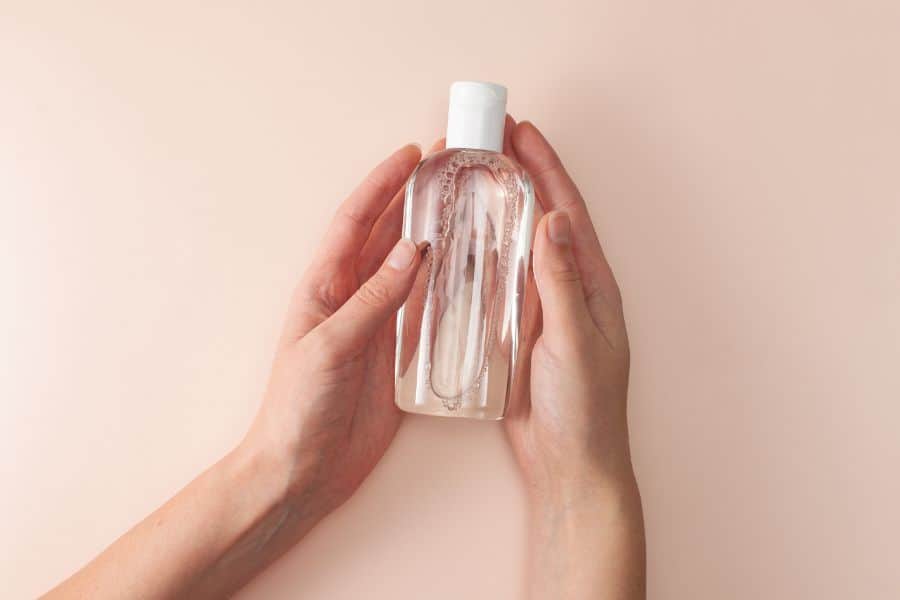
When you hear the word oil do you immediately think breakout? Most people are hesitant to use anything with oil on their skin, especially those with oily and acne-prone skin types. So when micellar waters first became popular, many were apprehensive about using them in fear they would cause acne, clogged pores or breakouts.
But, it’s important to note that not all oil is bad for your skin; in fact, some are actually beneficial, even for those with oily and acne-prone skin. Oils can help balance your skin’s natural oil/sebum production, which can lead to less oily skin and less breakouts.
So does micellar water cause acne or breakouts? The answer is an unsatisfying, it depends.
Micellar water is generally considered to be safe for all skin types, including acne-prone skin. However, some people may experience breakouts or clogged pores from micellar water.
This can happen if the formula contains ingredients that are known to clog pores or irritate the skin, or if you use micellar water without properly cleansing the skin afterwards.
While most micellar waters do not contain potentially pore clogging oils, some, like Drunk Elephant’s E-Rase Milki Micellar Water, does. It has sweet almond oil and baobab seed oil, which are both rated as a 2 on the comedogenicity scale. Meaning, they do have a moderate-to-low chance of clogging pores or leading to breakouts. While these oils can be great for the skin, those with oily or acne-prone skin types may want to patch test or only use oil-free micellar water.
Micellar water can also lead to acne if it’s not properly washed off. While many people use micellar water as a water-less cleanser and don’t rinse or wash it off, it really should not be used this way. At the very least micellar water should always be rinsed off, but it’s best to follow up with a regular cleanser to remove any residue or any lingering impurities like dirt or makeup that the micellar water may have missed.
The potential for micellar waters to cause acne comes down to the ingredients used in them and whether or not you’re following up with a proper cleansing routine. If not, surfactants and other ingredients are left behind on the skin, which in itself can potentially cause acne.
However, when these ingredients are left on the skin, they can “block” the rest of the skincare products you apply meaning they’re less effective. So that BHA or retinol you apply afterwards to help treat and prevent acne, can’t work as well with the surfactants of the micellar water sitting on top of the skin.
When it comes to using micellar water properly, it’s important to look for oil-free formulas and be sure to cleanse with a gentle cleanser afterwards. Doing this will help prevent any breakouts or clogged pores that might arise from using micellar water.
Related post: Is Micellar Water Oil Free?
Can Micellar Water Clog Pores?
Micellar water is not a replacement for a traditional cleanser. Although it can be used as one in a pinch, try not to make a habit of only using micellar water to cleanse your skin.
When it comes to skincare, micellar water has become increasingly popular over the past few years. It’s marketed as a simple yet effective way to remove dirt and makeup without harsh chemicals, but can it actually clog your pores? While it’s true that micellar water can be more gentle than other cleansing agents, it can still cause clogged pores if used incorrectly. But as long as you use micellar water correctly, the chances of it clogging your pores are slim.
Micellar water is not a replacement for a traditional cleanser. Although it can be used as one in a pinch, try not to make a habit of only using micellar water to cleanse your skin. Doing so ensures you’re removing any residue from the micellar water and also removing any impurities like dirt or makeup that the micellar water may have missed.
Not cleansing properly after using micellar water can leave a residue behind that can clog your pores, leading to breakouts. Additionally, some micellar waters contain pore-clogging ingredients like comedogenic oils.
Is Micellar Water Safe for Acne-Prone Skin?

Micellar water has become a popular skin care go-to for people all over the world, but is it safe for those with sensitive, acne-prone skin? The answer depends largely on the ingredients in the micellar water, which should be free of any irritating ingredients like fragrance, essential oils, alcohol and pore-clogging ingredients like comedogenic oils (such as coconut oil, mineral oil or marula oil).
Generally, micellar water is safe for acne-prone skin as long as you follow up with a gentle cleanser to remove any residue and ensure the skin is free from any dirt, oil or makeup that could lead to acne or clogged pores.
Related post: Does Micellar Water Remove Sunscreen?
Is Micellar Cleansing Water Good For Acne?
Micellar cleansing water has become one of the most popular ways to cleanse and refresh skin. But is is micellar water good for acne or is there a better alternative?
Micellar cleansing water can be a good option for people with acne-prone skin, but it depends on the individual’s skin type and the specific product being used. Micellar water is gentle and non-irritating, making it a good option for those with acne-prone skin to avoid further irritation and inflammation.
To properly care for acne-prone skin, the most important thing you can do is ensure you are properly cleansing your skin to remove any dirt, oil, bacteria or other impurities that can lead to clogged pores and acne. Micellar water makes a great first cleanse to breakdown makeup, dirt, oil and sunscreen. When followed up with a regular, gentle cleanser, it’s an effective double cleansing routine that can help to prevent acne from forming by keeping the skin clean.
It’s important to choose a micellar water that’s specifically formulated for acne-prone skin, as these products typically contain ingredients that help to unclog pores and prevent breakouts. The Bioderma Sébium H2O Micellar Water is formulated with Ginkgo Biloba, zinc and copper which help to mattify, control oil production and kill acne causing bacteria, all while gently cleansing the skin.
Bottom line is that micellar water can certainly be beneficial for treating acne by cleansing the skin and removing any acne-causing impurities without causing further irritation.
Related post: Is CeraVe Healing Ointment Good For Acne
Does Micellar Water Cause Acne FAQ’s
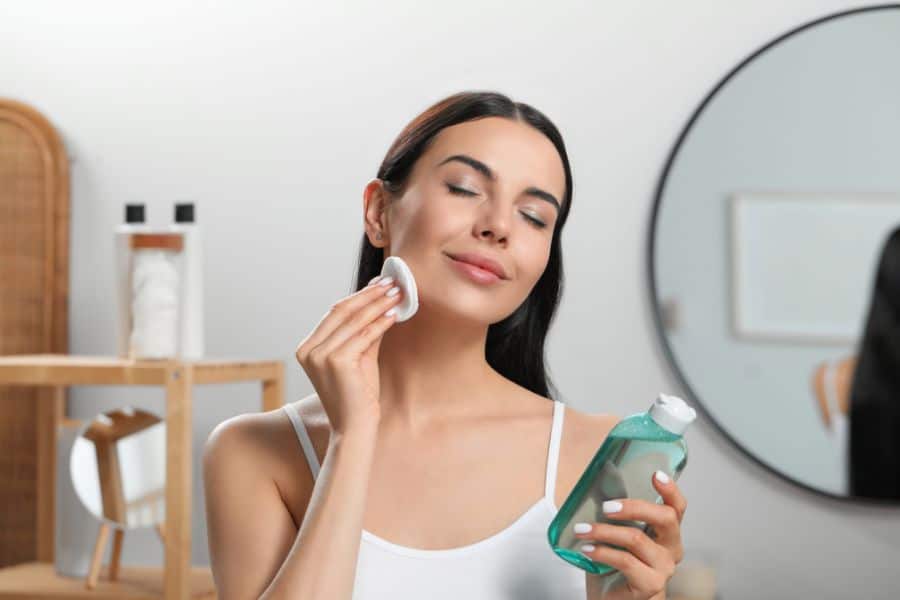
Should I Wash My Face After Using Micellar Water?
Although it is not necessary, it is still preferable to wash your face after using micellar water. Micellar water leaves behind a thin film on the skin’s surface.
The thin film of micellar water may block the pores on the skin and disrupt the secretion of oil. Consequently, the oil may start accumulating in the blocked pores which may trigger inflammation.
The inflammation may be noticeable in the form of pimples, white or blackheads. Therefore, it is best if the users wash their faces with a gentle cleanser or warm water after using micellar water.
Do Dermatologists Recommend Micellar Water?
Yes, dermatologists recommend micellar water as a gentle cleanser that’s suitable for all skin types. However, it’s important to keep in mind that micellar water does not replace a traditional cleanser and you should always follow up with a gentle cleanser.
Can Micellar Water Be Used As Toner?
No, micellar water should not be used as a toner. Toning is an important part of any skincare routine and it helps to rebalance the skin’s pH level and remove leftover impurities after cleansing. Toners should not be used to cleanse the skin and should only be used to remove any impurities after cleansing, balance the skin’s pH and add some extra hydration that’s often lost after cleansing the skin.
Micellar water is only used to cleanse the skin and remove makeup, therefore it should not be used as a toner. Toners are left on the skin, and micellar waters should always be cleansed off.
Related post: Micellar Water Vs Toner: What’s The Difference?
Can Micellar Water Make Acne Worse?
It is possible for micellar water to make acne worse, especially if it contains ingredients that are comedogenic or if the micellar water is not washed off properly. If you don’t wash your face after using micellar water, all the surfactants and other ingredients are left on the skin which can lead to irritation, acne and clogged pores. It can also keep your skincare products from penetrating so they’re less effective. Both of these things can certainly exacerbate acne, so it’s important to always follow up with a cleanser after using micellar water.
Do I Still Need To Wash My Face After Using Micellar Water?
Yes, you still need to wash your face after using micellar water. Although micellar water is a great way to remove dirt, makeup and other impurities from the skin, it doesn’t replace traditional cleansing.
Micellar waters can leave behind a thin film on the skin’s surface that can block pores and cause inflammation, acne and irritation.
Can You Wash Your Face With Micellar Water Everyday?
Yes, micellar water can be used daily, but it should not be used as a replacement for traditional cleansing. Micellar water can be used morning at night as a first cleanse to remove any impurities before cleansing the skin. It’s gentle and effective and perfectly safe to use daily.
Does Micellar Water Cause Pimples Wrap Up
Micellar water is a great addition to any skincare routine, as it can be used to remove dirt and makeup from the skin but does micellar water give you pimples? Generally, micellar water can be a great way to remove dirt and makeup from your skin. However, it should not replace traditional cleansing as it does not fully cleanse the skin of all impurities and may cause acne if used incorrectly and not properly washed off the skin. If you are going to use micellar water in your skincare routine, make sure that you follow up with a gentle cleanser afterwards and wash off any residue that might have been left behind.
